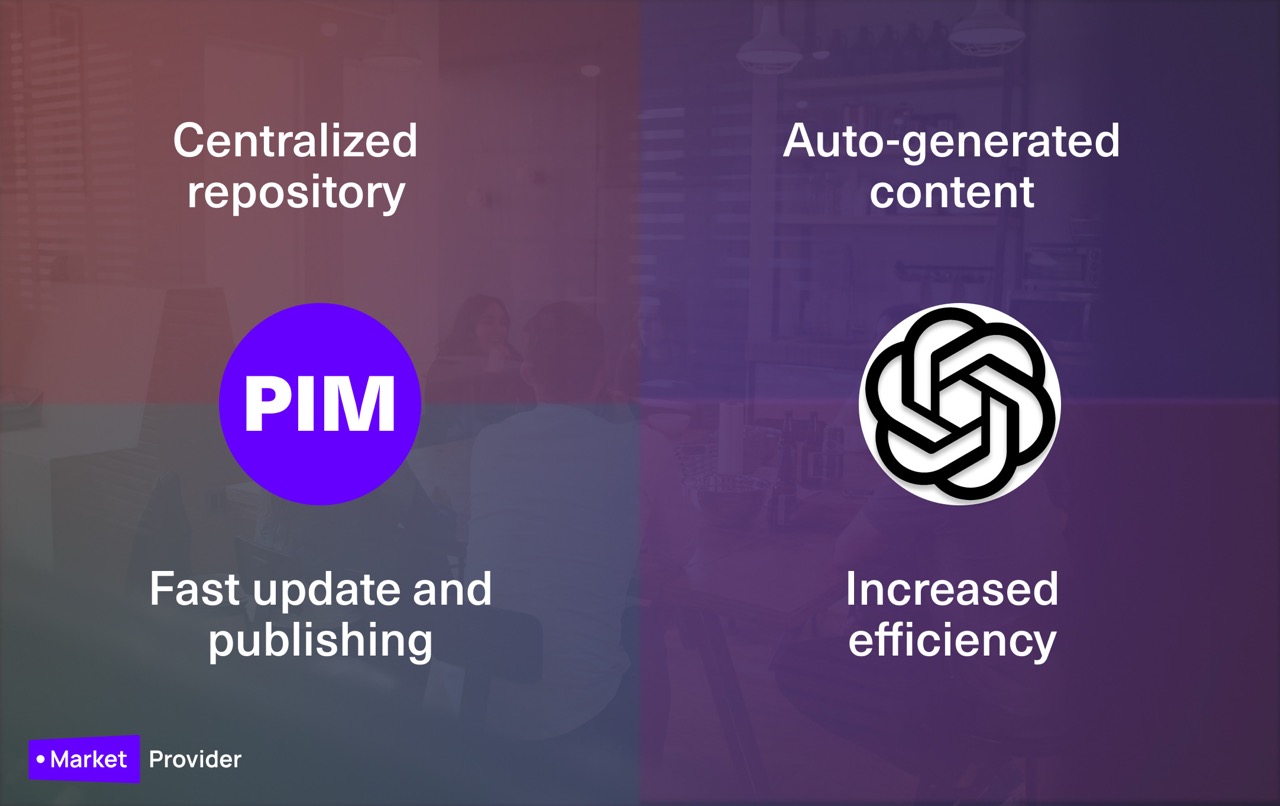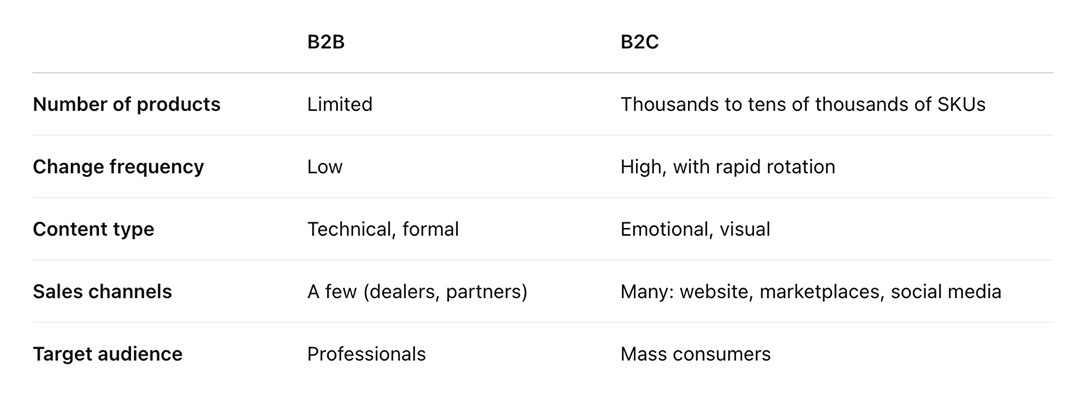AI Is Changing B2C — But Without PIM, It’s Just Chaos
In the era of digital transformation, the B2C sector is undergoing a powerful evolution. Where success once depended on a great physical location and aggressive advertising, today it’s all about speed, personalization, and efficient digital content management. And that’s exactly where AI and PIM come into play.

AI Transforms B2C: From Reactive to Predictive
Previously, customer interaction followed a simple model: “we offer — you choose.” Now, it’s a whole new game. AI not only analyzes customer behavior but also predicts their desires, guiding marketing and sales teams on what to offer, when, and through which channel.
Key AI Applications in B2C Sales:
- Content personalization - AI generates descriptions, headlines, and banners for specific segments.
- Recommendation engines - Based on user behavior, AI suggests personalized selections.
- Pricing optimization - Dynamic pricing based on demand, inventory, and competitors.
- 24/7 support - Chatbots and voice assistants enhance customer service.
- Automated A/B testing - Real-time test automation and performance analysis.
AI makes sales smarter — but it requires the right infrastructure for data management. This is where PIM becomes critical.
Why Content Management in B2C Is a Discipline of Its Own
Many believe that “product management” just means exporting an Excel file. But B2C is fundamentally different from B2B:

Content in B2C must be:
- Easy to understand
- Visually appealing (with visuals and infographics)
- Unique for each channel (marketplace, landing page, social network)
- Frequently updated
Without a centralized content management system, this leads to chaos.
How PIM Supports B2C Companies at Every Stage
PIM (Product Information Management) is not just a data storage system. It’s a unified platform where marketers, content managers, designers, e-com directors, and AI work in sync.
What PIM Delivers in B2C Retail:
- Centralized information — All product data in one place: images, videos, descriptions, SEO, tags, manuals, translations.
- Mass updates — Change one parameter and dozens of product cards are updated instantly.
- Channel-specific content — Feed generation for marketplaces, social media, and websites.
- AI integration — Automatic creation of descriptions and marketing copy.
- Team collaboration — Role assignment, task statuses, quality control.
- Speed to market — From weeks to hours.
- Flexible segmentation — Manage campaigns, seasonality, languages, and regions.
Real-World Examples: How PIM and AI Work Together
Example #1: A cosmetics brand with a wide product range
- Problem: New collections launch weekly, but content updates lag behind.
- Solution: PIM + AI automatically generate descriptions and visuals using templates and trained models.
- Result: Content is ready on launch day instead of two weeks later, boosting sales by 17%.
Example #2: Fashion retailer on marketplaces
- Problem: Each marketplace has its own content format and requirements.
- Solution: PIM sets rules for each channel, feeds are generated automatically.
- Result: No more manual updates. Content stays fresh across all platforms.
The Future of B2C: Platform + AI = Scalable Growth
Today, scaling in B2C is impossible without PIM and AI. Customers expect personalization, speed, omnichannel presence, and quality. All of this requires a system where content is not a burden, but a manageable asset.
PIM + AI = Scalable content, personalized CX, and sales growth.
Takeaways:
- B2C sales are becoming more complex, and consumers more demanding.
- AI helps personalize, automate, and accelerate.
- But AI without PIM is like an engine without a car.
- PIM enables marketing and commercial teams to work as a unified force.
- Companies implementing PIM + AI gain in speed, quality, and scalability.
If you sell in B2C — content can no longer be chaotic.
It must be strategic.
And it all starts not with AI, but with PIM.